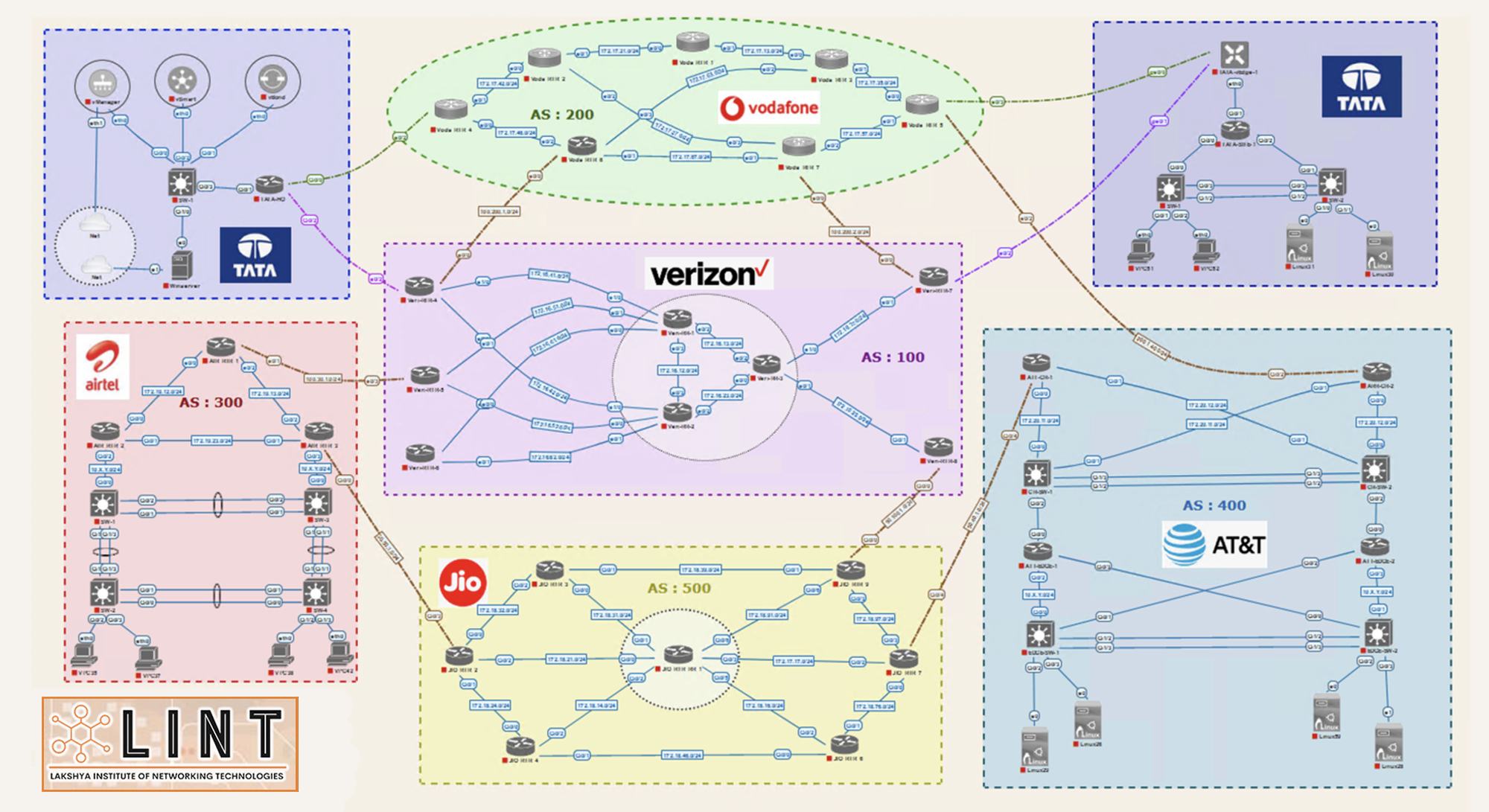Network Automation Program
The role of a Network Automation Program typically involves overseeing and executing initiatives aimed at automating various aspects of network configuration, provisioning, management, and troubleshooting. Benefits of network automation include increased efficiency, reduced operational costs, faster deployment of services, improved reliability, and enhanced security posture. We are strongly recommending this program for the entry level and mid-level engineers in Networking and IT industry. Here are some key responsibilities typically associated with this role:

Automation Strategy Development: Develop a comprehensive strategy for network automation aligned with the organization’s goals and objectives. This involves identifying areas of the network where automation can provide the most value, defining automation use cases, and establishing success criteria.
Tool Selection and Implementation: Evaluate and select appropriate automation tools, platforms, and frameworks based on the organization’s requirements and technical environment. Implement automation solutions for tasks such as configuration management, device provisioning, software updates, and troubleshooting.
Scripting and Coding: Develop scripts, templates, and workflows using programming languages (e.g., Python, Ansible, Puppet, Chef) to automate repetitive network tasks and workflows. Write code to interact with network devices, APIs, and management systems, ensuring scalability, reliability, and maintainability of automation solutions.
Talk to Our Consultant 89393 11044 89396 11044



Book Your Free Demo
Experience our Virtual Lab
Network Monitoring and Reporting: Develop monitoring and reporting mechanisms to track the performance, efficiency, and effectiveness of network automation initiatives. Implement dashboards, alerts, and metrics to monitor automation workflows, detect anomalies, and identify areas for improvement.
Courses covered in Network Automation Program :
CCNA : In this course, you will learn the fundamentals of networking, including LAN and WAN technologies, routing and switching protocols, network security, and network management.
CCNP : The course is divided into two parts: ENCORE and ENARSI. ENCORE focuses on the core concepts and technologies needed for enterprise networking, while ENARSI focuses on advanced routing concepts and technologies. Together, these two courses provide a comprehensive and in-depth training experience.
RHCSA : These courses cover various aspects of Linux administration, system configuration, and use essential tools for handling files, directories, command-line environments, and documentation by creating simple shell scripts. Red Hat Linux course training also helps to operate running systems, including booting into different run levels, identifying processes, starting and stopping virtual machines, and controlling services by configuring local storage using partitions and logical volumes.
PYTHON FOR NETWORK ENGINEERS : This course designed for Network Engineers to learn Python and other forms of Automation skills using Python Programming Language to manage Networks and Devices. Python for Network Engineers training deals with the study of how to Automate tasks on Routers and Switches using Python. With a proper knowledge of Networking coupled with Python training, one can automate networking tasks.
